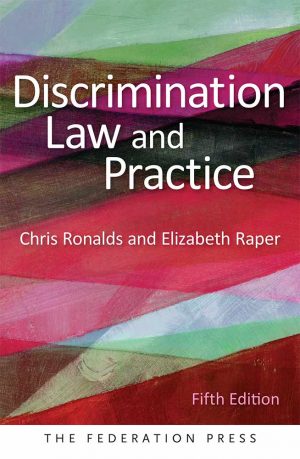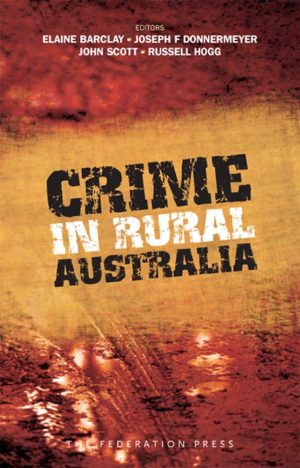The Place of Practice is a unique collection that aims to support law students and early career lawyers considering a career in rural and regional communities. Through the lens of ‘place’, it canvasses the ways in which lawyering and legal practice differs in the rural and regional context, and the particular issues and barriers facing clients and rural and regional communities. By recognising the fundamental diversity of rural and regional communities and the important role that lawyers play in facilitating access to justice within them, The Place of Practice focuses on the key skills, knowledge, and tools of resilience and wellbeing needed to thrive in rural and regional legal practice.
The Place of Practice draws together a diverse group of academics and legal practitioners who each bring a unique perspective on aspects of rural and regional legal practice. Contributions canvass a wide array of subjects including the practical and ethical settings of rural and regional legal practice, access to justice, entrepreneurship and innovation, distinct practitioner and client contexts (including working with Indigenous clients), professional and personal skills, accessing supervision and self-care. The Place of Practice is an ideal resource for students learning about rural and regional legal practice, early career lawyers considering working in a rural and regional practice, and practitioners who work with rural and regional communities.
Foreword by Fiona McLeod SC
Acknowledgments
List of Diagrams
About the Contributors
Introduction
Trish Mundy, Amanda Kennedy and Jennifer Nielsen
PART 1: PLACE
1. Constructions of the Rural in Australia
Russell Hogg
2. The Moralities of Australian Bush Lawyers
Reid Mortensen
PART 2: LEGAL PRACTICE
3. Rural and Regional Legal Practice
Trish Mundy and Amanda Kennedy
4. Women in ‘Rural’ Practice: Opportunities, Challenges and Strategies to Thrive
Trish Mundy
5. The Ethical Setting: Conflicts of Interest
Helen McGowan
6. Entrepreneurship and Innovation in Regional and Rural Legal Practice
Caroline Hart
PART 3: ACCESS TO JUSTICE
7. Access to Justice in Rural and Regional Communities
Helen McGowan and Richard Coverdale
PART 4: CLIENT CONTEXT
8. Working with Clients and Diverse Communities
Jennifer Nielsen
9. Yarning about Lawyering with and for Rural and Remote Aboriginal communities
Marcelle Burns, Russell Cavanagh and Melissa O’Donnell
PART 5: EFFECTIVE LAWYERING
10. Professional and Interpersonal Skills
John Littrich
11. Constructive Supervision in Regional, Rural and Remote Legal Practice
Jeff Giddings and Michael McNamara
12. Don’t Burn Out! Self-Care and Wellbeing
Stephen J Woods and Jennifer Nielsen
Index
Written by practitioners with significant experience in rural and regional Australia, these tips would be helpful to anyone starting out in the profession, wherever they are.
This book draws together diverse perspectives on the realities of legal practice in rural and regional Australia. It strikes an even tone and avoids idealising country life or continuing the ‘discourse of deficit’ so common in discussions about rural and regional Australia. Incorporating theoretical and practical perspectives, it straddles these styles in a way that is well suited to university study yet may be less accessible for the time poor practitioner or casual reader. Nonetheless, the spread of topics makes it a good reference book for people working in legal practice or regulation, public policy or academia. It is an excellent resource for the ambitious project of sharing the secret of rural and regional legal practice and opening up a highly rewarding and challenging career to even more law students and early career lawyers.
Eliza Ginnivan, Alternative Law Journal, Vol 43:2 2018
The Place of Practice, Lawyering in Rural and Regional Australia is a short work (259 pages) consisting of 12 well-researched and referenced papers by lawyers, academics and field workers. The authors have considerable personal experience in what is now often referred to as rural, regional and remote (RRR) areas of Australia.
The writing style of each author is quite different so the book does not flow in the same manner as if it had been written by one author but this does not, in any way, detract from its value. … I suggest that those of us who have practiced in the country for many years should also read this work. Although it covers issues of which we are probably aware, it makes one consider them in the context of the future of RRR practices.
Tricia Arden, Australian Law Journal, 2018, 92
As I was reviewing this book, sitting in my backyard with my border collies, a 10-minute walk from my office, on a warm Mildura day, it did not surprise me that: “Most regional and rural lawyers are bush-bred and have either stayed or returned home or have moved to another regional locality”.
The collection of contributions by academics, authors and practising lawyers offers considerations and strategies for those law students and admitted lawyers considering practice outside metropolitan and suburban Australia.
While there could have been more focus on the opportunities and strengths of regional and rural practice, the publication does raise many valid considerations and challenges.
Expectations of fast-tracked careers, entrepreneurial opportunities, increased early face to face client contact and economic realities are well acknowledged. Potential professional and social isolation, living in a fish bowl, and limited mental health, welfare and personal services are certainly real challenges. The publication acknowledges that each area and community is different. To succeed you need to know your community and legal market. For those without prior connection, making friends and developing social networks is a vital, but not necessarily easy part of entering a new community.
Michael Holcroft, InPrint, Law Institute Journal Victoria, April 2018







